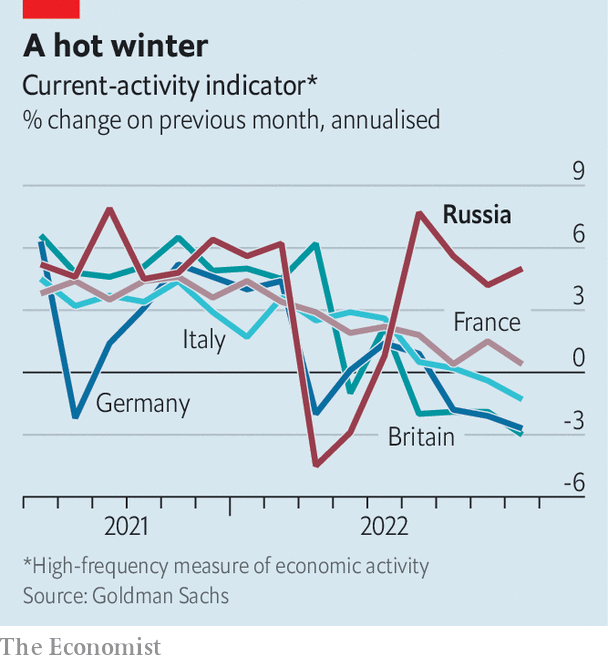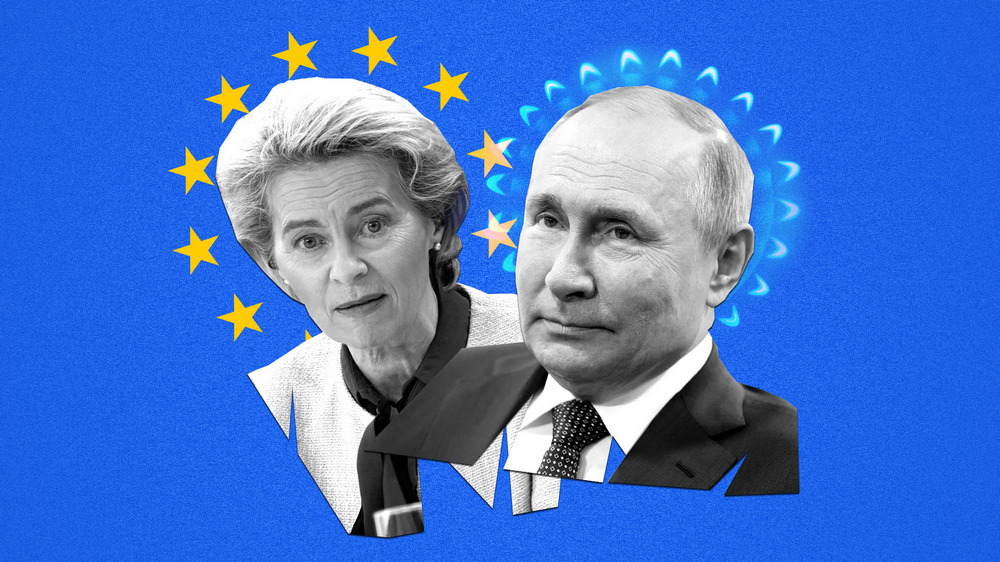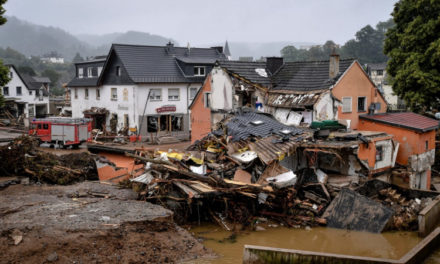In the public opinion of countries dominated by pro-war governments, they dare to serve anti-sanctions opinions only in pro and con positions, and now we are looking at such an article. Sanctions "work" - shouts the globalist propaganda and their chorus brings up the same arguments. At the outbreak of the war, they wrote about the collapse of the Russian GDP and record inflation. The Russian economy is undeniably affected by the war, but lately we have heard little about the state of the Russian economy - and this is no accident - read on the Mozgástér blog.
According to the IMF , a GDP decrease of 3.4 percent is expected in 2022 and 2.3 percent in 2023, and while Russia is now crawling out of the hole , in the EU they are only now making friends with the idea of inflation on a scale not seen for decades and with its expected consequences.

Source: The economist
How is economic activity developing?
Globalist mainstream media and propaganda say little about the impact of sanctions on Western Europe and the Eurozone. Of course, here too, it is worth following the recipe that what is said about the Russians applies to the countries under the sanctions regime: the economic downturn; inflation; rising prices of food and raw materials; mass redundancies; relocation of production; the narrowing of choices and the decline in living standards do not only affect Russians.
In a German newspaper, they have already gone so far as to present the results of the sanctions for and against : we already know the pro side from the mainstream media, let's look at the arguments according to which the sanctions will backfire!
According to pro-sanctions Brussels politicians, Moscow will not be able to finance the war without Western export revenues. On the other hand, the Russian energy export realizes a higher income even from the smaller amount, the world market price of oil is still around one hundred dollars. From December, when Western Europe will no longer buy Russian oil, prices will presumably climb even higher. The same is expected for the prices of manganese, palladium, neon gas and other raw materials.
The current sanctions undermine trust in international trade, division of labor and organizations dedicated to resolving conflicts. Previous sanctions typically applied to military technology and some strategic products that did not threaten international supply chains or Europe's economic model based on cheap Russian energy. The current sanctions are turning the Western economic model upside down, and national economies that are just finding themselves after the Covid epidemic will have to pay another, this time much higher, transformation cost.
Sanctions undermine confidence in the international financial system. The importance of foreign exchange reserves held in Western currencies is reduced, as they can be frozen overnight. China has already rapidly reduced its holdings of US government securities, and now other countries are also following suit. Interest rates are expected to rise due to falling demand, even though the southern countries of the Eurozone can only sell their government bonds at 3-4-5% interest, which is why the European Central Bank has become their biggest creditor, in violation of all EU rules.
The construction of a global alternative to SWIFT is accelerating within the framework of dedollarization, since no one wants to be vulnerable to a settlement system that can be used as a political weapon. The yuan-based Cross-Border Interbank Payment System (CIPS) is the most suitable for this, which strengthens the global trade position of the already world export champion China at the expense of the USA and the dollar.
Finally, attention should be drawn to the conflict potential inherent in sanctions. The USA and Brussels did not coordinate with the other economic powers and integration. They do all this by referring to "European and Western values", which only causes head shaking in two-thirds of the world. The globalists would have simply imposed their own sanctions on the others by force, it is no wonder if only a third of the world still joined the sanctions, although they are also a big exception.
In countries dominated by pro-sanction and pro-war governments, they can only cautiously criticize sanctions, but this was also the case with migration in 2015. Even then, Hungary was the first Western country to criticize the "open door policy" on the basis of common sense. Hungary is now the first to demand peace negotiations instead of imposing a sanctions regime that causes more damage to the West. We were right then, because we argued for the preservation of the European way of life. We are right now too, because we stand for the protection of peace and human life.
Graph: The Economist
Source and cover image: Hirado.hu












